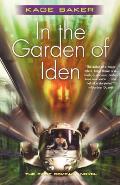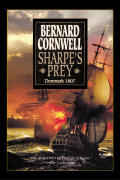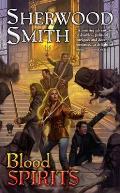What is it with fantasy stories and monarchies? Isn't there any other form of government?
Two words, power and privilege.
What’s not to like?
What’s not to hate?
Whatever those words evoke to us, it’s usually not boredom. Human beings are hierarchical. You take any group, no matter how determined they are to interact with sensitivity and equality, and a leader somehow emerges. That’s in situations that have the luxury of safety. In emergencies or danger, people turn desperately to anyone who can show them the way out, whether it’s by fighting or fleeing. The successful commander who becomes monarch is as old as history.
Monarchs make government personal, and most readers want stories about people more than they want stories about the function of politico-economic theory, for pretty much the same reason people at work gossip about the boss’s likes, dislikes, and private life. The doings of people in power are interesting, especially when they can impact you, but even when they won’t. Look at all
the celebrity chasers busily reporting on the often fatuous actions, opinions, marriages and breakups of our king-substitutes, actors.
We moderns seem to prefer stories about kings and queens from the days when monarchs were colorful figures in preference to today’s reclusive royalty who, wearing business suits like everyone else, appear only for photo ops and ribbon-snipping. The old kings had more power, but they also had to generate their own PR by looking like kings: when they traveled past you, with outriders and banner snapping and horses caparisoned to a fare-thee-well, you knew a king was passing.
Two words, power and privilege.
What’s not to like?
What’s not to hate?
Whatever those words evoke to us, it’s usually not boredom. Human beings are hierarchical. You take any group, no matter how determined they are to interact with sensitivity and equality, and a leader somehow emerges. That’s in situations that have the luxury of safety. In emergencies or danger, people turn desperately to anyone who can show them the way out, whether it’s by fighting or fleeing. The successful commander who becomes monarch is as old as history.
Monarchs make government personal, and most readers want stories about people more than they want stories about the function of politico-economic theory, for pretty much the same reason people at work gossip about the boss’s likes, dislikes, and private life. The doings of people in power are interesting, especially when they can impact you, but even when they won’t. Look at all
the celebrity chasers busily reporting on the often fatuous actions, opinions, marriages and breakups of our king-substitutes, actors.
We moderns seem to prefer stories about kings and queens from the days when monarchs were colorful figures in preference to today’s reclusive royalty who, wearing business suits like everyone else, appear only for photo ops and ribbon-snipping. The old kings had more power, but they also had to generate their own PR by looking like kings: when they traveled past you, with outriders and banner snapping and horses caparisoned to a fare-thee-well, you knew a king was passing.



